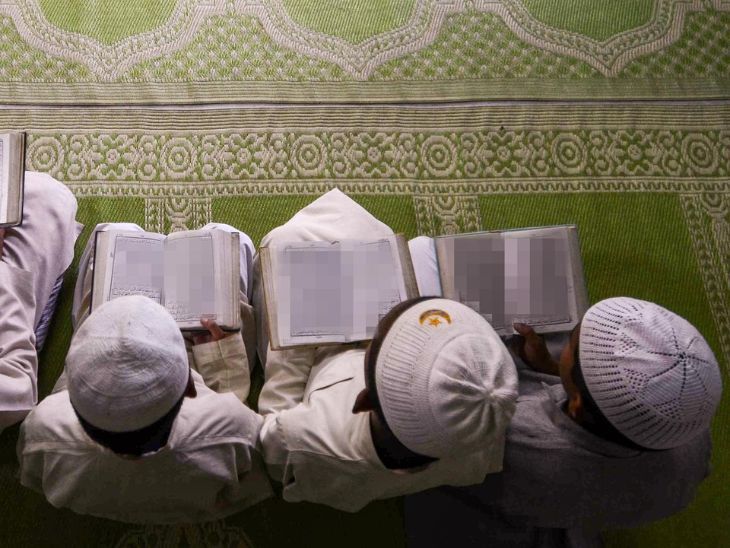The NCPCR said, “Madrassas focus entirely on religious education. It is for this reason that children do not receive the necessary education and lag behind other children. (symbolic photo)
The National Commission for Child Welfare (NCPCR) has written a letter to all states demanding that funds flowing to madrassas be stopped. These do not follow the rules of Right to Education (RTE).
The Commission made the suggestion after preparing a report titled “Guardians of Faith or Adversaries of Rights: Constitutional Rights of Children Against Madrassas.”
The NCPCR said: In Madrassas, the entire focus is on religious education, due to which children do not get the necessary education and lag behind other children.
3 recommendations from the Children’s Commission
Funds provided by the state to madrassas and madrassa boards should be stopped. Non-Muslim children should be removed from madrassas. According to Article 28 of the Constitution, no child may receive religious education without parental consent. Religious education and formal education cannot be provided simultaneously within one institution.
Reaction to the Children’s Commission report
They want to overturn everything that is provided for in the Constitution. These are people who want to play politics on hatred, who want to play politics on discrimination. These are people who want to play politics by fighting religions and castes.
Akhilesh Yadav, SP chief
Controversy over UP Madrasa Act, SC banned it On April 5, 2024, the Supreme Court had stayed the Allahabad High Court’s decision declaring the ‘UP Board of Madrasa Education Act 2004’ unconstitutional. Along with this, responses have also been sought from the central and UP governments. The court said the High Court’s decision would affect 17 lakh students. It is not okay to ask students to change schools.
In fact, on March 22, the Lucknow bench of the Allahabad High Court declared the UP Madarsa Act unconstitutional. The court found that this was a violation of the principle of secularism. The bench of Supreme Court Chief Justice DY Chandrachud, Justice JB Pardiwala and Justice Manoj Mishra heard the petition of the Madrasa Board on Friday.
The court said the High Court was not prima facie right. It would be wrong to say that this Madrassa law violates secularism. Even the UP government had defended the Madrasa Act in the High Court. Responding to this, ASG KM Nataraj, on behalf of the UP government, said, “We definitely defended this law in the High Court, but the court declared this law unconstitutional. After that, we also accepted the court’s decision.
The petition against the law was first filed in 2012 The first petition against the Madrasa Act was filed in 2012 by Sirajul Haq, director of Darul Uloom Wasiya Madrasa. Then in 2014, Abdul Aziz, Minority Welfare Secretary of Lucknow, and in 2019, Mohammad Javed of Lucknow filed a petition.
After this, in 2020, Raijul Mustafa had filed two petitions. Anshuman Singh Rathore filed the petition in 2023. Nature was the same in all things. The High Court therefore merged all the petitions.
The investigation was carried out on the contribution of security agencies The UP government had received information from social organizations and security agencies that madrassas were being run illegally. Based on this, the Uttar Pradesh Council and the Minister for Minorities had decided to conduct an inquiry. Then, a team of 5 members was formed in each district. This included a district minority officer and a district school inspector.
UP Madrasa Board Act The UP Madarsa Board Education Act, 2004 was a law passed by the Government of Uttar Pradesh. Which was established to improve the madrassa education system in the state. Under this law, madrasas would be recognized by the board if they met the minimum standards.

